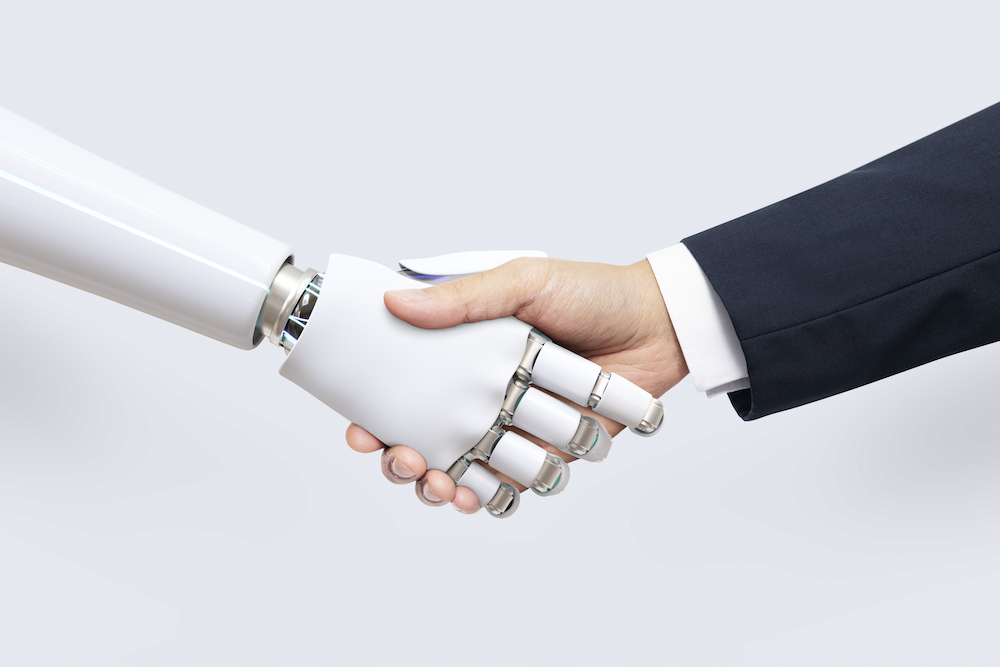Artificial intelligence (AI), while one of the most useful – and interesting – technologies out there, is nevertheless the subject of all sorts of opinions and rumours. Of course, that’s normal for any emerging part of science, given that much of its development is reported to a critical public. Unfortunately, the rumour mill can make it difficult to gauge exactly what’s going on in AI circles and how far along in its development it actually is.
At the moment, humanity seems to be torn between two diametric opposites. These are a) that AI will kill us all without mercy, and b) that AI will be a huge benefit for the human race over the next few decades. However, both of these possibilities seem to ignore the fact that AI has been with us in some capacity since the 1940s (and earlier in science fiction) and now serves all sorts of everyday purposes.
As the UK gears up to become a global AI superpower, following the signing of a National Artificial Intelligence Strategy, let’s take a look at one of the areas that could stand to benefit the most from AI – eCommerce or online shopping. A few good examples of AI from this area are product recommendations and chatbots. Both Amazon and Google make extensive use of AI in their respective eCommerce businesses, for example.
Niche Products
The idea of chatbots is especially interesting, as Internet-based AI is notorious for losing its mind when exposed to social media. However, on shopping websites, chatbots only provide a semblance of intelligence. The AI we have in the workplace and at home, like Alexa, is little more than a program that responds to certain words and stimuli, rather than something similar to Skynet, from the Terminator franchise.
This begs the question of whether investing in AI is worthwhile when there are plenty of ways for websites to improve their shopping experiences without it. One of the use-cases of AI in eCommerce is finding deals, something that 40% of chatbox users expect from the service, according to Ubisend. This task seems to have already been nailed by comparison websites, though.
In the UK, the market for comparison sites is dominated by just a handful of companies, known for their memorable advertisements. These include Compare the Market and MoneySuperMarket. What’s interesting about these sites is that they’ve all grown in similar ways, largely to fulfil essential household needs like energy and broadband rather than entertainment or luxuries. This means that more specific sites have been able to thrive without getting trapped in their gravity.
Skyscanner has enjoyed a long career providing access to flights, while the PriceSpy website lets visitors compare the cost of products like video games. Entertainment can be a difficult thing to offer comparisons for, as it’s highly subjective. Still, the casino industry benefits from comparison services. The best slot sites can be found on the Online-Slot page, which rates operators like LeoVegas and Fun Casino according to the number of games available to play and the quality of any bonuses that can be collected.
Finally, Google Shopping and Uswitch are useful for general price checking and sourcing an energy supplier, respectively. This kind of platform may benefit from the introduction of AI but it’s by no means a necessity.
Human Employees
Inevitably, the pursuit of automation is at the heart of most plans to incorporate AI, as it helps take the pressure off human employees and free up resources. This outcome isn’t fully accepted, though. DataProt, citing Blumberg Capital, claims that only 19% of people surveyed believe that AI will increase productivity. However, this statistic may be influenced by fears about redundancy caused by uptake.
To reinforce the previous point, fears about AI in the workplace seem to contrast with research from SnapLogic, which states that 68% of employees actually want more automation in the office to increase performance. AI shouldn’t reduce humans’ ability to find work. 85 million jobs may be eliminated, according to DataProt, but 97 million new ones could be created by 2025.
The perhaps unfortunate scenario facing modern eCommerce businesses is that AI is an essential consideration for any company trying to compete with Amazon and Google. As this will produce an increase in overheads, the idea of a medium-sized business may feel like a bit of an exclusive club towards the end of the decade.
In any case, these are interesting times for AI and online shopping.

















